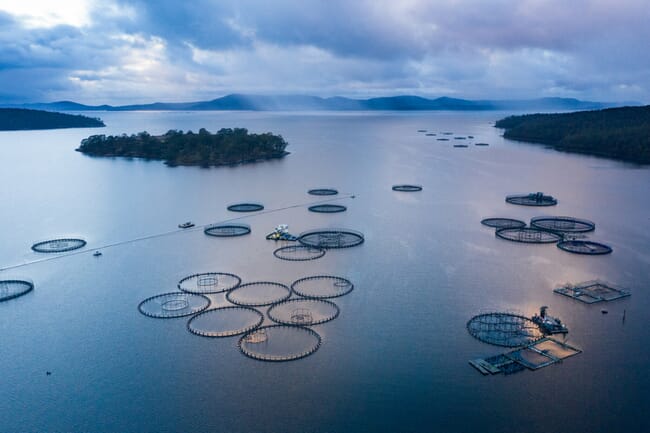
It provides over a decade's worth of transparent data across 15 key sustainability metrics for all members in all regions.
The report, which contains over 2,800 data points from 14 GSI members, underscores GSI's collective commitment to aligned, open-access reporting since its inception in 2013.
“By aligning data, GSI has common language and apples to apples comparisons to support decision making and collaboration,” said Jason Clay, senior vice president, markets, World Wildlife Fund.
The 2023 GSI report outlines the environmental performance and nutritional profile of farm-raised salmon, allowing GSI members to not only demonstrate their contribution to sustainable food systems, but also hold themselves accountable to ambitious sustainability targets. Using the data in the report, GSI members can identify areas where further effort is required, learn from each other, and accelerate the necessary environmental improvements.
“Farmed salmon has a unique opportunity to be at the forefront of aquaculture sustainability and innovation. If any aquaculture species has the resources and energy behind it, it’s salmon. Farmed salmon can be the leader in sorting out some of aquaculture’s biggest sustainability challenges,” said Robert Jones, director, global aquatic food systems, The Nature Conservancy (TNC).
“There is no hiding from the data. As a sector, we know now more than ever improvements need to be made and we know they need to happen quickly and in a meaningful way. The GSI members recognise that the challenges they face are too big to overcome alone and that there is benefit it working together and learning from each other. We continue to utilise the outcomes of the report to guide our work and find ways to reduce our footprint and provide optimal welfare for the fish in our care,” said Sophie Ryan, CEO of GSI, in a press release.
An emphasis on collaboration
With over 27,000 people employed worldwide by GSI members, collaboration is key to driving industry-wide change at speed and scale.
The latest report showed that in 2023, 64 percent of GSI members' salmon production was Aquaculture Stewardship Council (ASC) certified, indicating adherence to stringent environmental and social standards. The report also signals a 75 percent reduction in the average use of antibiotics since GSI’s establishment in 2013, a testament to GSI's commitment to sharing best practices and implementing alternative fish health management strategies. GSI members also have significantly improved the footprint of feed ingredients through improved sourcing strategies such as utilising by-products assessing and incorporating novel ingredients, and improving efficiencies in feeding strategies.
While these numbers are encouraging, production and environmental challenges must continually be addressed. Farming footprint must be reduced, and continuous improvements demonstrated in operational performance. GSI members are committed to utilising a unique model of pre-competitive collaboration and improved transparency to generate data-based approaches for sustainability improvements at speed and scale.
“Such a coordinated effort helps push companies to report more than they otherwise would have, or at least get them moving earlier. It also helps the users by providing the data in a single and easily available setting and with common definitions, making it much easier to use,” said Dag Sletmo, senior vice president, DNB.




